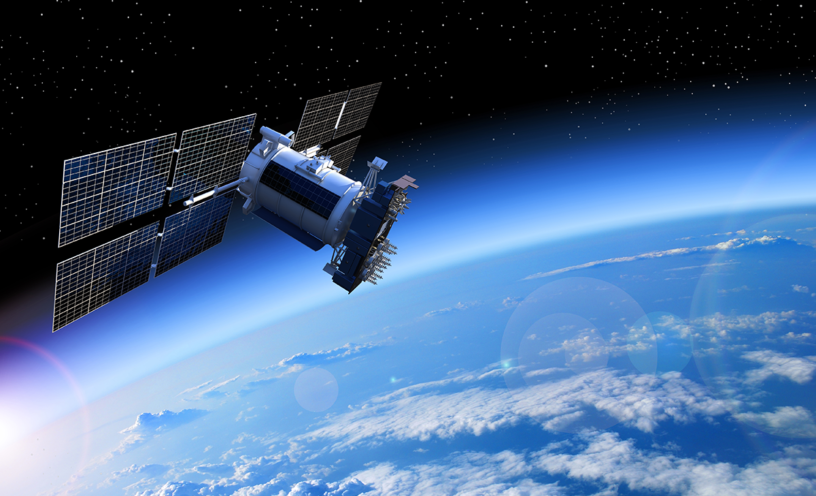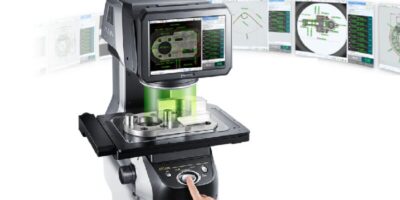Introduction: The Navigation Satellite Systems Market encompasses technologies and services related to satellite-based navigation systems that provide accurate positioning, navigation, and timing information to users worldwide. These systems are essential for various applications, including transportation, logistics, telecommunications, and personal navigation. The market is driven by the growing reliance on satellite navigation across multiple sectors and advancements in satellite technology.
Market Dynamics:
- Growth Drivers:
- Increasing demand for location-based services (LBS) in sectors such as automotive, aviation, and mobile applications.
- The expansion of smart transportation and logistics systems requiring precise navigation data.
- Technological advancements in satellite systems, improving accuracy and reliability.
- Restraints:
- High costs associated with the development and maintenance of satellite infrastructure.
- Vulnerability to signal interference, jamming, and environmental factors affecting accuracy.
- Regulatory challenges and geopolitical issues related to satellite operations.
Key Factors Driving Market Growth:
- Rising Demand for GPS and GNSS Applications: The proliferation of GPS and Global Navigation Satellite Systems (GNSS) in various industries is driving market growth, particularly in automotive and consumer electronics.
- Growth in IoT and Smart Cities: The integration of navigation systems into IoT devices and smart city initiatives enhances the demand for accurate location data for efficient urban management.
- Expansion of Aviation and Maritime Industries: The need for precise navigation and safety measures in aviation and maritime sectors is fueling the adoption of advanced navigation satellite systems.
- Increased Investment in Satellite Infrastructure: Governments and private entities are investing in the development of new satellite systems and technologies to enhance global navigation capabilities.
Market Trends:
- Integration of Advanced Technologies: The incorporation of technologies such as artificial intelligence (AI) and machine learning (ML) into navigation systems is improving data analysis and decision-making processes.
- Emergence of Alternative Navigation Systems: Development of alternative navigation systems, including regional satellite systems and ground-based augmentation systems, is enhancing competition in the market.
- Focus on Enhanced Accuracy and Reliability: Continuous improvements in satellite technology are aimed at increasing the accuracy and reliability of navigation data for critical applications.
- Growing Use of Navigation in Autonomous Vehicles: The rise of autonomous vehicles is driving demand for advanced navigation systems that ensure safe and efficient operation.
Benefits:
- Enhanced Accuracy: Navigation satellite systems provide highly accurate positioning information, essential for various applications such as autonomous driving and logistics management.
- Increased Efficiency: Businesses can optimize their operations, reduce costs, and improve service delivery through accurate navigation data.
- Global Coverage: Satellite navigation systems offer worldwide coverage, enabling users to access navigation services in remote and rural areas.
- Support for Safety and Security: Accurate navigation data enhances safety and security in transportation, aviation, and maritime operations.
Opportunities:
- Growth in Emerging Markets: Increasing smartphone penetration and demand for navigation services in emerging economies present significant opportunities for market expansion.
- Integration with 5G Technology: The deployment of 5G networks can enhance the performance of navigation systems, providing faster and more reliable services.
- Advancements in Satellite Technology: Innovations in satellite technology, such as miniaturization and improved sensor capabilities, can lead to new applications and markets for navigation systems.
Challenges:
- Signal Interference and Jamming: Vulnerability to signal interference and jamming poses challenges to the reliability and security of navigation satellite systems.
- Regulatory Compliance: Navigating the complex regulatory landscape governing satellite operations can be challenging for providers.
- Infrastructure Investment Costs: The high costs associated with developing and maintaining satellite infrastructure may limit market growth for some players.
Key Points:
- The Navigation Satellite Systems Market is essential for various applications, driven by increasing demand for location-based services and technological advancements.
- Key growth factors include rising GPS and GNSS applications, growth in IoT and smart cities, and investment in satellite infrastructure.
- Trends such as integration of advanced technologies and focus on enhanced accuracy are shaping the market.
- Opportunities exist in emerging markets and through advancements in satellite technology, while challenges include signal interference and high infrastructure costs.
𝐂𝐥𝐢𝐜𝐤 𝐇𝐞𝐫𝐞, 𝐓𝐨 𝐆𝐞𝐭 𝐅𝐫𝐞𝐞 𝐒𝐚𝐦𝐩𝐥𝐞 𝐑𝐞𝐩𝐨𝐫𝐭
https://stringentdatalytics.com/sample-request/navigation-satellite-systems-market/14040/
Market Segmentations:
#ByCompany
GNSS
Rockwell Collins
Qualcomm Technologies International Ltd.
AgJunction, Inc
Garmin Ltd.
Furuno Electric Co Ltd.
Hexagon
Raytheon Company
Topcon Corporation
Trimble Navigation Ltd
TomTom NV
#ByType
Global Constellations
Regional Constellations
Satellite-Based Augmentations
#ByApplication
Road
Surveying
Agriculture
Rail
Aviation
Global Navigation Satellite Systems Market: Regional Analysis
The regional analysis of the global Navigation Satellite Systems market provides insights into the market’s performance across different regions of the world. The analysis is based on recent and future trends and includes market forecast for the prediction period. The countries covered in the regional analysis of the Navigation Satellite Systems market report are as follows:
North America: The North America region includes the U.S., Canada, and Mexico. The U.S. is the largest market for Navigation Satellite Systems in this region, followed by Canada and Mexico. The market growth in this region is primarily driven by the presence of key market players and the increasing demand for the product.
Europe: The Europe region includes Germany, France, U.K., Russia, Italy, Spain, Turkey, Netherlands, Switzerland, Belgium, and Rest of Europe. Germany is the largest market for Navigation Satellite Systems in this region, followed by the U.K. and France. The market growth in this region is driven by the increasing demand for the product in the automotive and aerospace sectors.
Asia-Pacific: The Asia-Pacific region includes Singapore, Malaysia, Australia, Thailand, Indonesia, Philippines, China, Japan, India, South Korea, and Rest of Asia-Pacific. China is the largest market for Navigation Satellite Systems in this region, followed by Japan and India. The market growth in this region is driven by the increasing adoption of the product in various end-use industries, such as automotive, aerospace, and construction.
Middle East and Africa: The Middle East and Africa region includes Saudi Arabia, U.A.E, South Africa, Egypt, Israel, and Rest of Middle East and Africa. The market growth in this region is driven by the increasing demand for the product in the aerospace and defense sectors.
South America: The South America region includes Argentina, Brazil, and Rest of South America. Brazil is the largest market for Navigation Satellite Systems in this region, followed by Argentina. The market growth in this region is primarily driven by the increasing demand for the product in the automotive sector.
Click Here, To Buy Premium Report
https://stringentdatalytics.com/purchase/navigation-satellite-systems-market/14040/?license=single
Key Questions Answered in This Report:
1. What are navigation satellite systems, and how do they function?
2. What are the primary applications and benefits of navigation satellite systems across different sectors?
3. What factors are driving the growth of the navigation satellite systems market?
4. What are the main challenges and limitations associated with navigation satellite systems?
5. Who are the leading companies and key players in the navigation satellite systems market?
6. What are the latest trends and technological advancements in navigation satellite systems?
7. How do navigation satellite systems integrate with other technologies such as IoT and autonomous vehicles?
8. What role do international regulations and agreements play in the navigation satellite systems market?
9. What opportunities for innovation and expansion exist within the navigation satellite systems market?
10. What is the future outlook for the navigation satellite systems market?
About Stringent Datalytics
Stringent Datalytics offers both custom and syndicated market research reports. Custom market research reports are tailored to a specific client’s needs and requirements. These reports provide unique insights into a particular industry or market segment and can help businesses make informed decisions about their strategies and operations.
Syndicated market research reports, on the other hand, are pre-existing reports that are available for purchase by multiple clients. These reports are often produced on a regular basis, such as annually or quarterly, and cover a broad range of industries and market segments. Syndicated reports provide clients with insights into industry trends, market sizes, and competitive landscapes. By offering both custom and syndicated reports, Stringent Datalytics can provide clients with a range of market research solutions that can be customized to their specific needs.
Contact Us
Stringent Datalytics
Contact No- +1 346 666 6655
Email Id- sales@stringentdatalytics.com
Web- https://stringentdatalytics.com/




Leave a Reply